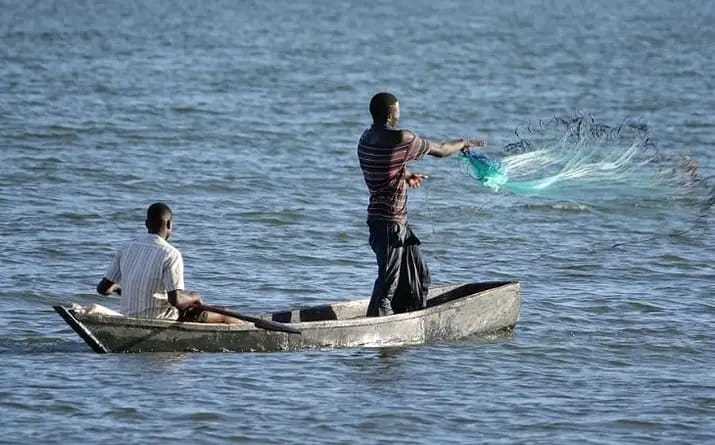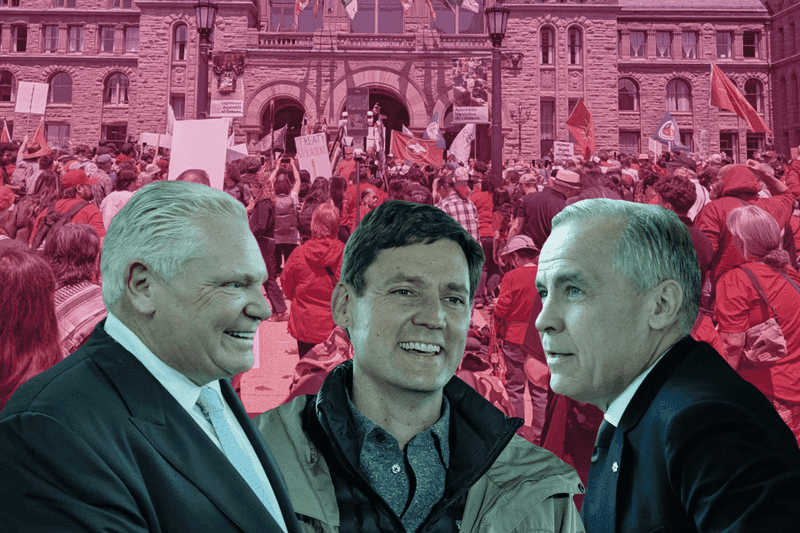
In the age of decolonisation-as-a-metaphor — where the word usually invokes ‘culture war’ debates over statues, songs or the content of curriculums — it is easy to forget that decolonisation once signified the complete overturn of the global order. In the three decades between 1945 and 1975, as we moved from a world of empires to a world of nations, membership in the United Nations grew from 51 nation-states to 144. Sovereignty multiplied across Africa, Asia and the Caribbean as national liberation leaders like Nkrumah and Nyerere heralded the promise that statehood offered to the formerly subjugated peoples of the world — a promise not only of nominal political freedoms, but of economic development. Far from being a metaphor, decolonisation suggested that a major reorientation of the material axis on which the world spun was imminent. On one level, the proposal for what became known as the New International Economic Order (NIEO) appeared to be the apotheosis of this post-war trajectory.
The campaign for the NIEO was the culmination of years of increasing collaboration between the newly decolonised nations in international settings. Decolonized nations on their own were isolated and weak within the international order, unable to use their newfound political sovereignty to actually correct the economic imbalance that limited their opportunities. In 1955, the independent countries of Africa and Asia met in Bandung, Indonesia for a conference that is now seen as the birth of ‘Third World’ internationalism.(1) In 1966, they met again, this time with the addition of countries in Latin America, giving this meeting its title as the Tricontinental conference. When talk of the NIEO began to emerge in the 1970s, it appeared as though the energy that had been generated through these south-south encounters was now moving into the institutional home of international law, the United Nations, where the new nation-states could collectively use their numerical advantage to redress this unfair economic system.
In May 1974, these peripheral collaborations amongst the ‘Third World’ nations bore fruit right at the heart of the system of international law: the United Nations. Whilst the Bretton Woods economic institutions distributed power proportional to size and power in the global economy, the UN General Assembly reflected, at least formally, the more egalitarian structure of “one country one vote.” One of the leading voices in the call for the NIEO, Jamaican president Michael Manley, encouraged the Third World movement to invest hope in the UN, for he believed that, despite ‘all its institutional limitations,’ the UN still represented ‘the highest aspirations of mankind,’ and remained ‘the most efficient instrument that man has devised to translate these aspirations into reality for the benefit of all.’(2) It was in this imperfectly-but-aspirationally democratic institutional setting that Third World movement took perhaps its most ambitious step: mobilising their numerical advantage to pass a resolution that threatened to radically realign the distribution of power across the global economy. Included within this Declaration on the Establishment of a New International Economic Order was a commitment to ending the waste of food products, a recognition of the rights of countries to enjoy full permanent sovereignty over their own natural resources, and, perhaps most strikingly, a provision which reinforced the power of national governments to control ‘the activities of transnational corporations by taking measures in the interests of the national economies of the countries where such transnational corporations operate.’(3) Transnational corporations, many of whom were hangovers from the old colonial companies of the European empires, were continuing to extract wealth and resources from the newly independent countries without put much back in by way of investment. By reinforcing the legal control they could exercise over those companies, the drivers behind the NIEO hoped to rebalance the scales of power between decolonised countries and transnational corporations.
However, the NIEO also helped accelerate the counter-revolution in the West against the interests of an increasingly muscular Third World. Whilst opposition to the economic vision of a decolonised international order had been consistent element of the post-colonial world, it took of a new fervour with a renewed Anglo-American power bloc that emerged with the election of Ronald Regan and Margret Thatcher turned away from the UN and its representation of postcolonial nations, and invested instead in institutions like the IMF and World Bank that allowed them to limit the emergence of rising world power. With Thatcher and Reagan spreading the gospel of free-marketism across the world, whilst Manley and his allies gained increasing influence within the UN, it was clear that a confrontation on the international stage was set to emerge over the horizon. The Anglosphere had taken this decisive ideological turn just in time for tensions to come to a head at the Cancun Conference.

In 1981, twenty-two heads of states from across five continents met in the Caribbean for the first and only ‘North-South’ conference. By the time the Cancun conference commenced, Thatcher and Reagan had already calculated that they had little reason to compromise with Southern demands. Instead, Thatcher took this trip to the Caribbean as an opportunity to tell the ‘Third World’ that the solution to its’ problem was simply to open up further to the international markets — it wasn’t that countries didn’t need help, but that, first, they needed to help themselves.(4)When Third World governments complained of the ‘structural adjustment policies’ that the IMF and World Bank were imposing on them in exchange for loans, the UK’s representatives responded that, as they were also in the midst of a process of privatisation and deindustrialisation, haemorrhaging jobs across the automobile industry and steel industries, they knew ‘quite a lot about structural adjustment” themselves.(5) The ‘Third World’ countries needed to stop looking for sympathy and instead start looking at the opportunities that privatising their economy and opening up to foreign investment could provide. Thatcher and Reagan shot down the idea of a UN Bank to lend to developing countries at better rates than the IMF and the World Bank were doing. Thatcher was cutting in her assessment of why such a bank couldn’t succeed within an institution like the UN where developing countries held the numerical advantage: “there was no way that I was going to put British deposits into a bank which was totally run by those on overdrafts.”(6) Thatcher believed that “the primary responsibility for development rests with the developing countries themselves,” and that it was incumbent on them to “pursue policies that would attract private investment” rather than to try and gain the means to exert control over the rules of global trade.(7) Ultimately, the meeting in Cancun ended in frustration for those hoping for the birth of a new international economic order. No new laws or plans for action were agreed by the time the heads of states boarded their flights back home. When Thatcher returned to face the rest of the British Parliament at Westminster, she claimed “I think that there was a lot of misunderstanding about the purpose of the conference. I think that hopes were artificially raised.”(8)
Over the following decades after Cancun, the NIEO dream of ‘developing’ countries being able to exert control over the multinational corporations that operated in their lands drifted further and further away. The ambition of securing a binding international treaty that could hold corporations to a fixed set of international controls would never materialise. One of the central aims of the NIEO, for the world’s governments to agree a United Nations Code of Conduct on Transnational Corporations, broke down over the 1980s as the Thatcherite/Reaganite revolution shifted the emphasis of negotiations from protecting countries from predatory corporations to protecting corporations from greedy governments.(9) Then, in 1993, the UN Commission on Transnational Corporations was collapsed into the UN’s Trade and Development forum, where it would be reimagined as the UN Commission on Investment, Technology and Related Financial Issues.(10) As the influence of UN forums over economic affairs waned, the power of private arbitration courts, investor state dispute resolution tribunals, and international investment law rose to lock in the autonomy of private capital from the demands of mass democracy. International law became an overarching system of systems, each designed to entrench the power of private capital over the sovereignty of nation-states.
The defeat of the NIEO accelerated that elevation of wealth into the sphere of a parasitic no place, protected and encased by a binding transnational architecture of private law. State and private law has combined to place transnational economic interests and rights to property above the rights of people. In place of the language of democratic control to ensure accountability for transnational capital came the talk of investment and competition. While the NIEO spoke openly about addressing the inequalities across the world by changing the legal and economic structure, the neoliberals who defeated them spoke only in the language of charity. This has had devastating consequences not just for the Third World nations that drove the call for the NIEO, but also for working people of Anglo-American world, whose leaders were so resistant to the call for change. It has proved an error to believe that the weaponization of the international capitalist class to dismantle the sovereign power of ‘developing’ nations would not facilitate the ricochet of the weaking of democratic sovereignty back home.
In the post-Covid world of escalating inequality, the history of the NIEO reminds us that decolonisation remains an incomplete project, one whose neutering before reaching maturity is tied to the financial and corporate takeover of life across the world over the last half a century. If we wish to reimagine what international trade may look like in the twenty-first century, it is worth searching through the embers of the NIEO to recover ideas for how we might bring back the Icarus of transnational corporate capitalism back to earth, before its burns the entire planet in its hubris.






